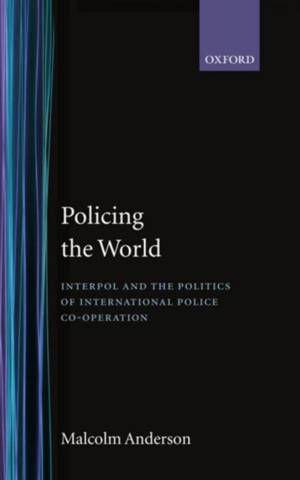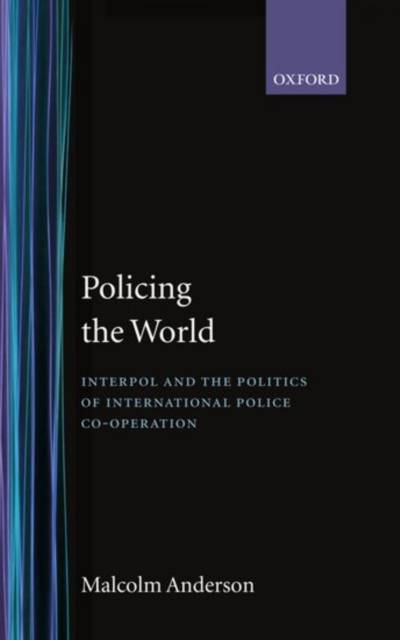
- Afhalen na 1 uur in een winkel met voorraad
- Gratis thuislevering in België vanaf € 30
- Ruim aanbod met 7 miljoen producten
- Afhalen na 1 uur in een winkel met voorraad
- Gratis thuislevering in België vanaf € 30
- Ruim aanbod met 7 miljoen producten
Zoeken
Policing the World
Interpol and the Politics of International Police Co-Operation
Malcolm Anderson
Hardcover | Engels
€ 226,95
+ 453 punten
Omschrijving
Interpol, the oldest and best-known institution fostering cooperation among the police forces of the world, tackles drug trafficking, terrorism, and other modern day criminal activities. Recently, however, speculation has arisen: is it the most effective organization for today's global conditions, or should it be supplanted by new arrangements? In this first scholarly study of Interpol, and of other contemporary forms of police cooperation across national boundaries, Anderson discusses the proliferation of different forms of cooperation, such as the exchange of intelligence about crimes and criminals and joint surveillance of suspects and the investigation of crimes. Recognizing that contact between police forces of sovereign independent states has always been sensitive, he analyzes uncertainty as to the extent of police cooperation, and examines the shadowy role of security forces and the influence of different forms of training on police attitudes.
Specificaties
Betrokkenen
- Auteur(s):
- Uitgeverij:
Inhoud
- Aantal bladzijden:
- 224
- Taal:
- Engels
Eigenschappen
- Productcode (EAN):
- 9780198275978
- Verschijningsdatum:
- 12/10/1989
- Uitvoering:
- Hardcover
- Formaat:
- Genaaid
- Afmetingen:
- 145 mm x 224 mm
- Gewicht:
- 422 g

Alleen bij Standaard Boekhandel
+ 453 punten op je klantenkaart van Standaard Boekhandel
Beoordelingen
We publiceren alleen reviews die voldoen aan de voorwaarden voor reviews. Bekijk onze voorwaarden voor reviews.











